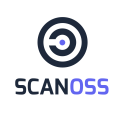Traffic congestion is a persistent challenge in urban areas, and effective traffic planning is crucial for improving mobility, reducing congestion, and enhancing overall transportation systems. Traffic simulation tools, like Eclipse SUMO, have emerged as valuable tools for analyzing traffic patterns, predicting future scenarios, and evaluating the effectiveness of potential solutions. By replicating real-world traffic conditions, simulations enable planners to evaluate different scenarios without disrupting existing infrastructure. They can be used to assess the impact of new road layouts, public transportation systems, and traffic management strategies, allowing planners to make informed decisions.
Unfortunately, despite their value, tools for traffic simulations like Eclipse SUMO are hard to use and require consistent effort for maintainance - making it especially hard for planners without a strong IT background. We would like to present SESAM - a "web service shell" for Eclipse SUMO. SESAM offers a comprehensive and scalable solution for urban traffic planning and simulation. It provides an intuitive user interface that simplifies the process of creating and configuring traffic scenarios. Additionally, SESAM features a REST API, allowing developers to integrate SUMO simulations into their own applications and systems seamlessly. This enables city planners and traffic engineers to harness the power of traffic simulations more effectively, fostering data-driven decision-making and hereby improving urban mobility.

















